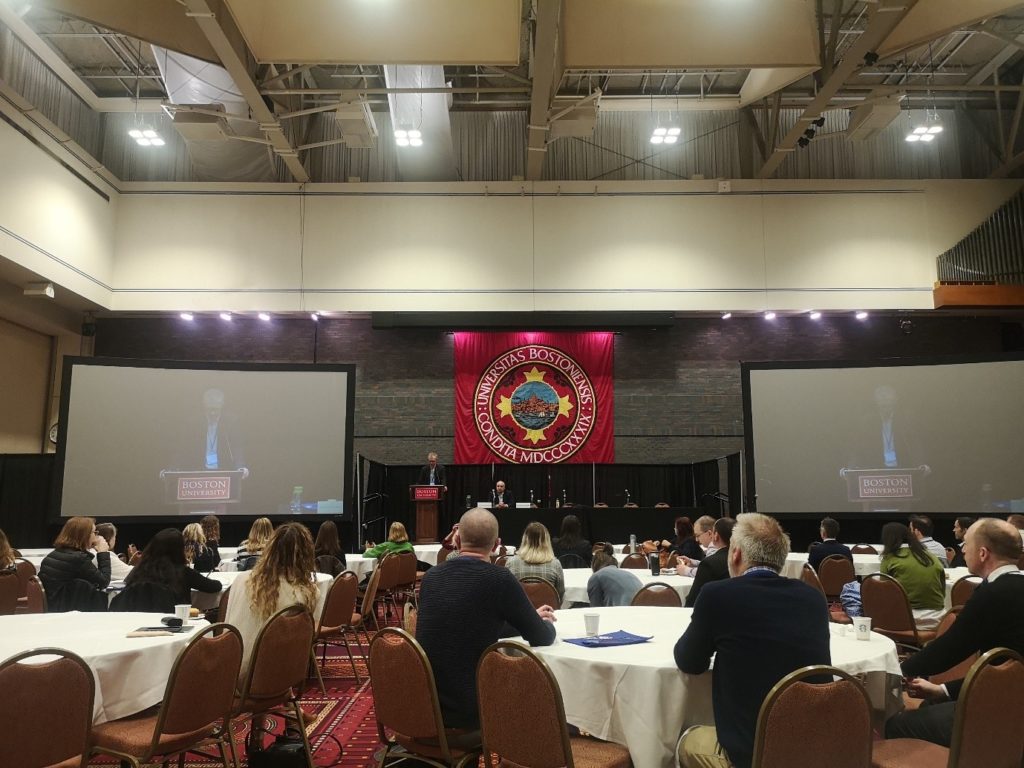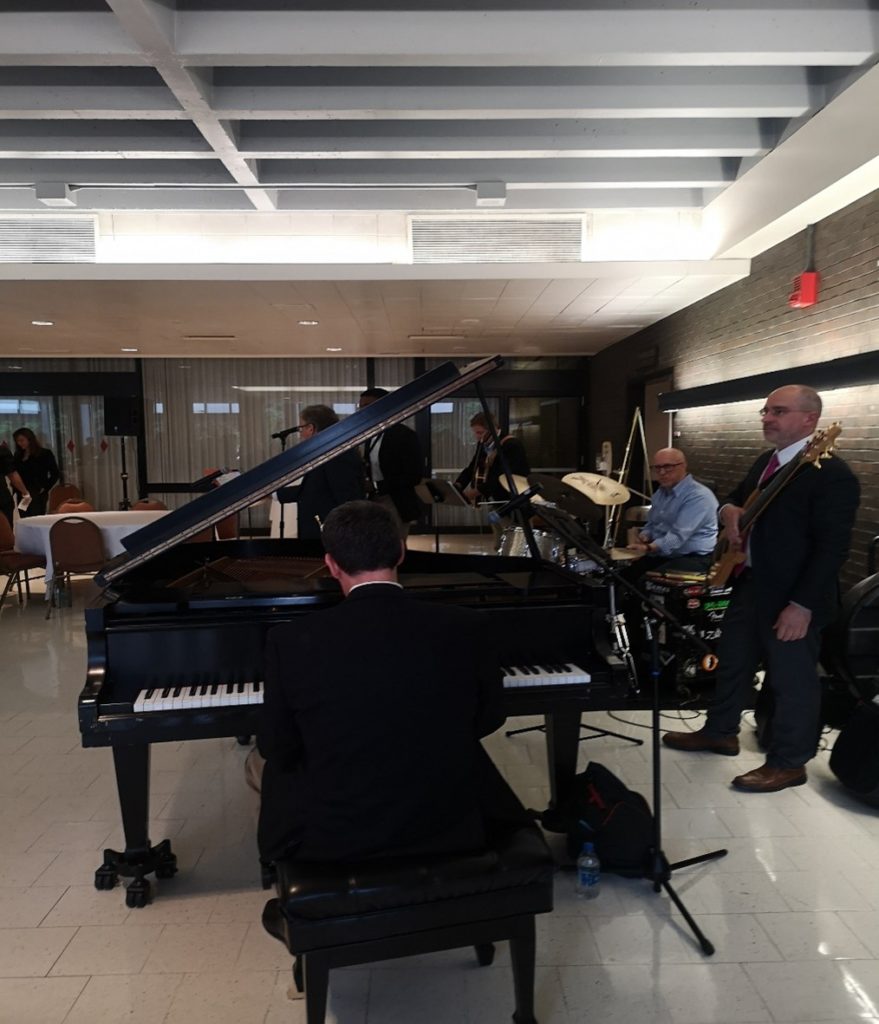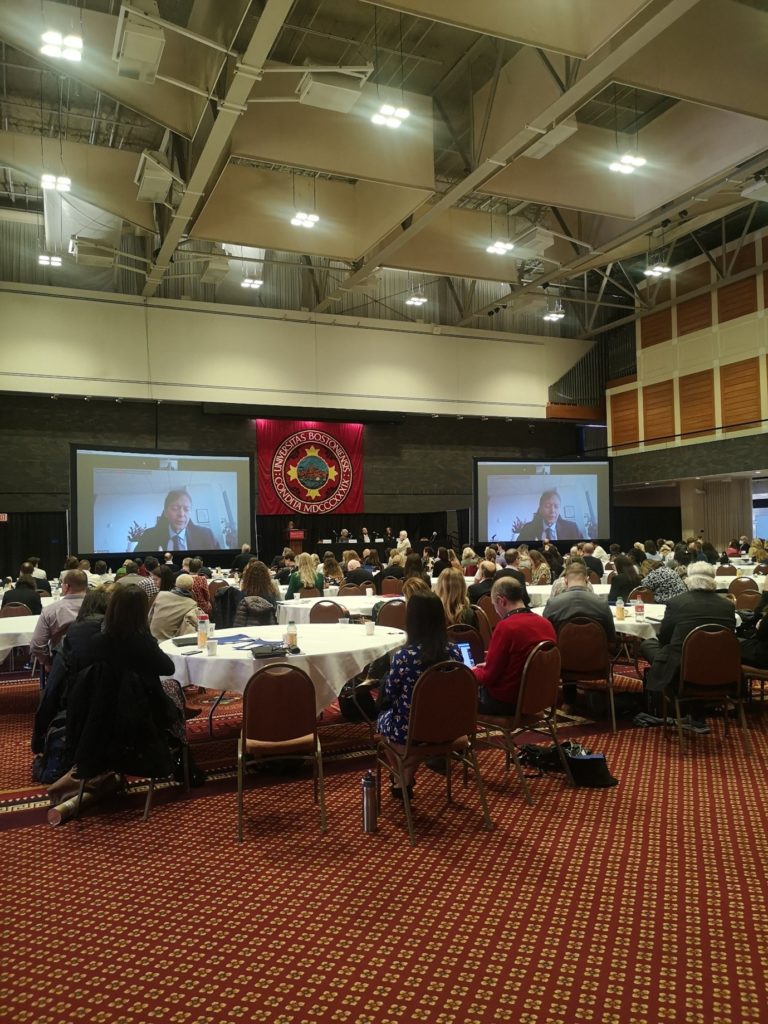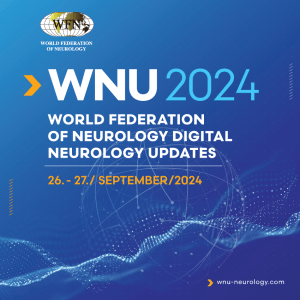The 4th International Conference on FND, organised by the Functional Neurological Disorders Society (FNDS), was held in the City of Boston, a thriving hub of scientific research and education, between the 19th and 21st of June 2022. This multi-disciplinary conference not only brought together leading international experts from a range of backgrounds, including neurology, physiotherapy, psychiatry, psychology, and speech and language therapy, but also welcomed junior doctors, trainees and students to contribute to the conference programme.
Society’s mission to disseminate knowledge about FND by providing educational programmes and sponsoring international symposia, for clinicians, scientist and the general public, was reflected in their registration fees which were open to all of those groups, including students. Additionally, the conference was made accessible and more affordable to the wider population by an option of virtual attendance. The conference offered a busy and well thought out schedule. Each day began with breakfast workshops, delivered by experts from different disciplines. Over three full days, the world leading experts in FND discussed and shared knowledge on diagnosis and phenomenology of FND, pathophysiology and treatment.
The first day focusing on diagnosis and phenomenology of FND began with a selection of workshops on communicating FND diagnosis, psychotherapeutic treatments, neurological assessment and neuropsychiatric assessment of FND. I attended the workshop lead by Professor Brown and Professor LaFrance who spoke about psychotherapeutic treatments in FND. Emphasis was on the importance of tailoring psychotherapeutic treatments based on an idiosyncratic formulation to address the heterogeneity of people with FND in targeting presenting symptoms and underlying psychopathology. The workshop provided a variety of techniques and tools that could be used when working therapeutically with this group of people, covering neurobehavioral therapy, CBT, psychodynamic therapy and motivational interviewing.

Following the breakfast workshop, we were welcomed by Professor Dworetzky, a founding member of FNDS. Professor Carson presented on “FND Now and Then”, providing a historical and contextual overview of this disorder, how far we have come along from a “wandering womb” explanation of FND to having our own FND society, driving leading research. He emphasised the need for a multidisciplinary approach when working with this population. Then, Dr Lidstone, expert in movement disorders, opened up the session focusing on clinical presentations of FND. She addressed core features of Functional Movement Disorder (FMD), differences between FND and FMD, as well as recovery trajectory and the need to address perpetuating factors in treatment.
Professor Dworetzky focused on Functional Seizures (Psychogenic Non-Epileptic Seizures, PNES) and the need to diagnose without relying on EEG, as delays in diagnosis lead to delays in treatment. Utility of smartphone use in functional seizure recordings was discussed as a potential tool for diagnosis. Professor Gert van Dijk spoke about Psychogenic Syncope (PPS), often mistaken for seizure. While PPS and PNES present similarly, they have different care pathways. He stressed the role of early diagnosis and patient’s understanding of FND in better outcomes.
Dr Plioplys gave an overview of FND in children and young people, describing them as a heterogenous and neurodiverse group of patients. She emphasised the use of transdiagnostic approaches, applying the biopsychosocial framework within developmental context. Professor Espay explored the connection between FND and Parkinson’s Disease (PD), suggesting a presence of functional manifestations for people with PD and dementia. Professor Dodick discussed an overlap in mechanisms with FND and Migraines. Dr Hoeritzauer’s talk on Functional Cauda Equina Syndromes closed the clinical presentations of FND session.
Following a lunch and poster presentation session Dr Mark Hallett, the president of society, addressed the attendees and discussed the involuntary nature of FND, distinguishing it from fictitious disorder and malingering. In the afternoon session, Dr McWhirter presented on Functional Cognitive Disorder (FCD) and long haul COVID’s most common complaint of “brain fog”. She discussed how functional cognitive symptoms often are a result of something else, for example increased cognitive load which in turn decreases people’s ability to attend to information, and how to diagnose it. Succeeding this talk, Dr Nicholson reviewed functional vaccine complications, how we all may experience them to an extent, likening it to a spectrum, and considered how we may identify and differentiate between organic and functional vaccine complications.
The last session included video grand rounds of four case reports focusing on diagnosis. They highlighted the importance and the need to reduce the gap between diagnosis and treatment, as well as the importance of involving family in treatment and the lack of gender diversity in FND research. The first day closed with a welcome reception that allowed an opportunity to network, while enjoying music by Dr Phil Pearl’s Children’s Hospital Jazz Band.

The second day, focusing on pathophysiology, began with parallel breakfast workshops on neuropsychometric assessment, conversation analysis in FND, clinical neurophysiology and physiotherapy for FND. Professor Feldman Barrett opened the day with her talk on predictive coding, interoception, and emotions and their implications in FND. Personally, this was such a grabbing and thought provoking talk, challenging some common ways of thinking about the structure and functioning of the brain and emotional processing. Professor Feldman Barrett spoke about the predictive nature of our brain and the role of limbic regions as the source of predictions, that control our actions and construct our experiences (what we see, hear and feel), as well as the role of emotion construction in FND. Then Professor Van den Bergh spoke about symptom perception and the role of stronger affect and decreased sensory perceptual detail in creating vulnerability to FND development.
The subsequent morning session, chaired by Professor Kanaan, focused on early development. Presenters spoke about relationships between adverse childhood experiences and vulnerability to FND, difference on an individual level and the importance of consistency in childhood and its impact on brain development. Dr Perez advocated for a transdiagnostic approach to FND. Following a short break, we received an inspiring talk from a person with FND, that received standing ovations. They spoke about their journey of receiving the diagnosis, the stigma and having to independently make sense of FND. They stressed the importance of respecting the diversity of this condition and allowing time “to digest the diagnosis”. The morning session ended with an FND society business meeting.
The afternoon consisted of brief clinical and research talks, ranging from the use of TMS in FND to psychodynamic formulation. One of the sessions focused on functional and structural imaging in FND. While the consensus is that for most patients FND is a software problem, emerging evidence suggests that for some it may both a hardware and a software problem. Vulnerabilities and the course of illness can be reflected in neuroimaging. This session was followed up with junior video cases focusing on mechanistic and therapeutic insights. The day culminated in the Gala Dinner at the University of Massachusetts Club.
The final day, focusing on treatment of FND, consisted of multiple parallel workshops and individual talks. One of the breakfast workshops focused on developing and improving treatment pathways and services for FND. The workshop provided practical information on what to include in business proposals and the importance of a multidisciplinary approach. In the first morning session, Dr Fobian spoke about using Retraining and Control Therapy (ReACT) for FND with children and young people. Then Dr Baslet presented on psychotherapy for FND. He reviewed the findings from CODES, the largest RCT looking at CBT for people with PNES. While adding CBT to standard care did not reduce the frequency of seizures, it improved general health and functioning, as well as people’s experiences of seizures. Dr Baslet emphasised the importance of a multidisciplinary approach in treating FND and looked at other psychological therapies, such as guided self-help and mindfulness based psychotherapy. The morning session ended with a presentation of Occupational Therapy recommendations for FND, based on a recently published consensus.
The second session included talks on Functional Communication and Swallowing Disorders, the use of TMS in FND treatment, as well as the use of psychedelics and other novel pharmacological considerations. Then Professor Clauw shared knowledge and research in the field of chronic pain and how it could be applied in FND. The afternoon consisted of two workshops holding parallel sessions covering a variety of topics from the use of monitoring devices to evaluate seizures to psychotherapy treatment challenges.
The final afternoon session focused on unanswered questions in FND, medicine and its future. Professor Aybek compared the conquest of FND to the conquest of Space, both challenging and ambitious, when sharing the progress made in this field. FND is now a rule in diagnosis, with the focus on positive signs. There is emerging diagnostic criteria for FCD and functional tics. Huge progress has been made in neuroimaging in limbic-motor interactions. The role of predictive coding, suggesting that in FND there is too much emphasis on prior expectation/belief and that the actual efference signal is discarded. There is some evidence for epigenetic changes on the oxytocin gene, involved in stress cascade. However, more research is needed. Professor Aybek concluded that future focus should be on gene-environment interaction and validation of scales that could be used in emergency situations.
Dr Hallett, the current president, closed the conference by thanking the team, sponsors and everyone that made the conference happen. He spoke about the ethos of the FND society – bringing everyone together, as this is too big a problem for one discipline to solve, there is plenty of work to be done and it needs us all to work together. He announced that hybrid meetings will be a format of future meetings – keeping costs down, to increase attendance and reduce carbon footprint. Dr Hallett also highlighted the need to further our focus on education.
And just like that, the FNDS conference was closed. It was such a well organised conference, with people’s passion for this field shining through in each and every talk. Until we meet again in 2024 in Verona.


